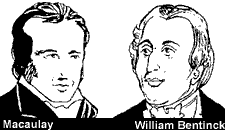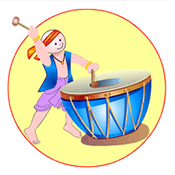|

1857 witnessed two great events which greatly influenced the course of history in this country: the outbreak of the Great Revolt and the founding of universities at Calcutta, Mumbai and Chennai. If the Great Revolt marked the end of one phase of the struggle for Independence, the birth of universities marked the beginning of another because those who came out of these universities, picked up the torch of freedom lit in 1857.
The birth of the three universities in 1857 marked the consolidation of Western education introduced at the beginning of the century. The young Indian minds were exposed to English education at a time when the English language and literature were enriched by the slogans and ideas of liberty and equality thrown up in the wake of the American Declaration of Independence and the French Revolution. It is significant that the first English school in Calcutta was started in 1800 barely a decade after the French Revolution.
Raja Rammohan Roy who strongly advocated the introduction of English education dreamt of "India speaking English" and "India possibly independent."
Macaulay who championed the cause of English education in India, in his spirited speech in the House of Commons said: "Having become instructed in European language, they may, in some future age, demand European institutions. Whenever it comes, it will be the proudest day in English history."
On 7th March 1835 William Bentinck the governor-general announced the education policy: "The great object of the British Government ought to be the promotion of European literature and science among the natives of India; and all the funds appropriated for the purpose of education should be employed on English education alone."
It was in pursuance of this policy that A.O. Hume had opened hundreds of schools in Etawah District of the United Provinces. While Hume, like other Englishmen, had fought Indians to put down the 1857 revolt, he was determined to give them education which would one day empower them to rule themselves.
|
Lover of Liberty
 The ship carrying Raja Rammohan Roy to England, in 1830 had to put in at the Cape of Good Hope where a French ship was also anchored.
The ship carrying Raja Rammohan Roy to England, in 1830 had to put in at the Cape of Good Hope where a French ship was also anchored.
The Raja though ailing and in pain asked to be taken aboard the French vessel. The French received him warmly and were touched when he saluted their Flag of Liberty shouting: "Glory, glory, glory to France!"
|
|
|
|
| 
